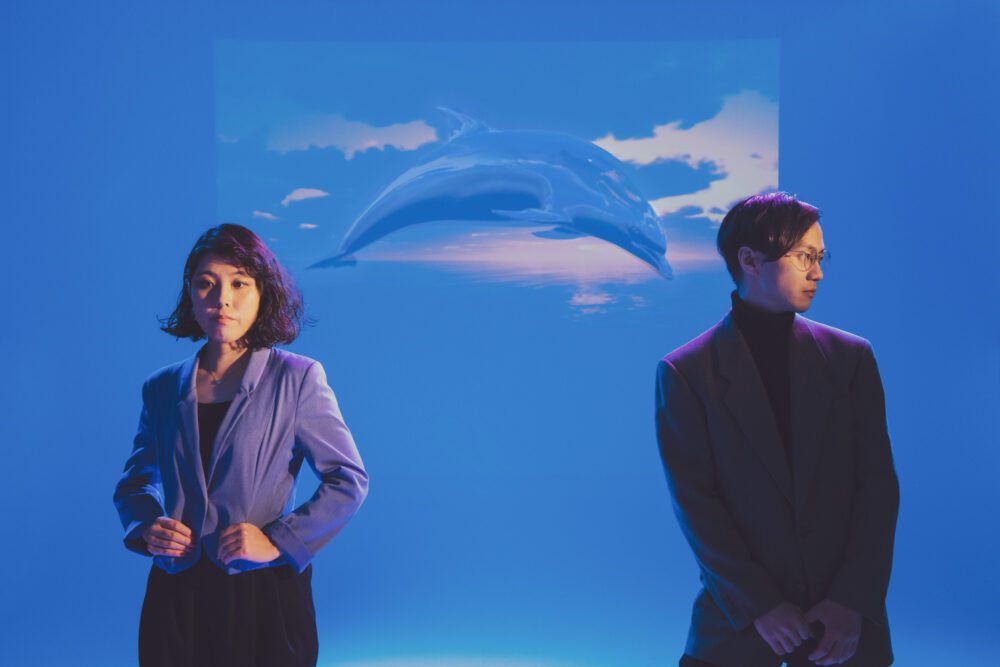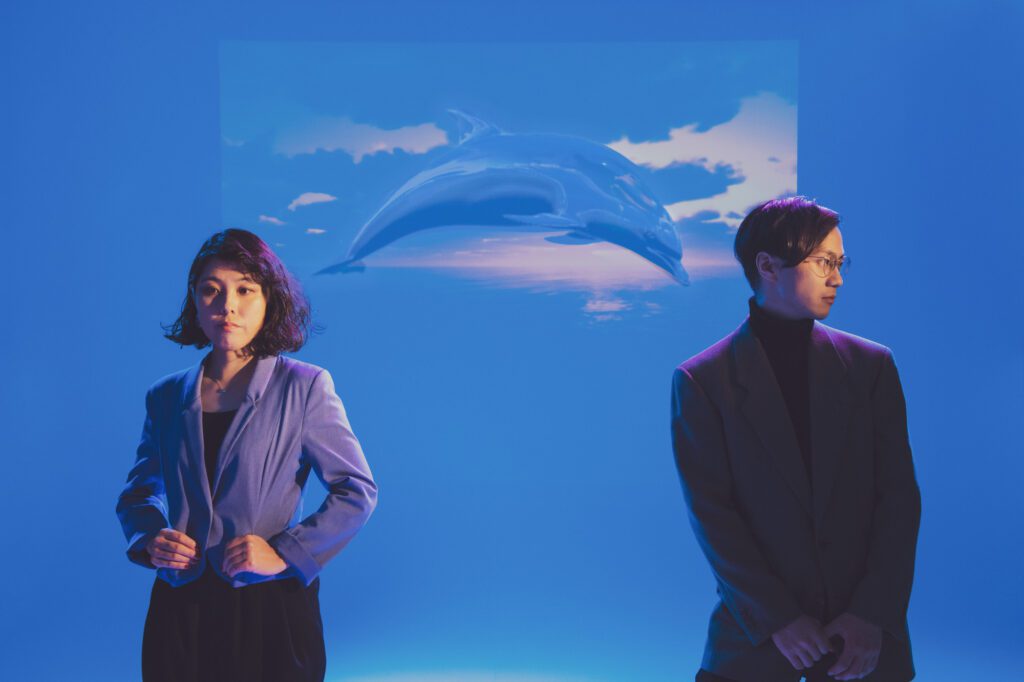

The video for “Refraction Overdrive,” from Japanese duo Crystal’s latest album, Reflection Overdrive, is so unabashedly ’80s that you might, for a second, think that you’ve been transported to a wood paneled living room, where you’re drinking wine coolers while flipping channels between MTV and Night Flight. It’s a clip filled with keyboards and fog, plus effects that might recall The Cars’ video for “You Might Think.”
Two of the big influences for the “Refraction Overdrive” video were actually “The Number One Song in Heaven” from Sparks and Hall & Oates’ hit “I Can’t Go For That.” They aren’t flashy videos, but they have distinct vibes with their subdued choreography and musicians decked out in blazers. In “Refraction Overdrive,” you can see the similarities in the dance moves, the costumes and the close-ups of hands tickling keyboards.
When the subject of the video comes up during our Zoom chat, Tokyo-based Sunao Maruyama and Ryota Miyake start to mention other artists that have influenced them in the course of making the album, released on May 7. Maruyama notes that J-pop had an impact on the duo. Miyake mentions Pet Shop Boys, as well Fancy, the German singer of ’80s disco jams like “Slice Me Nice.”
On Reflection Overdrive, the idea was to fuse various styles, amongst them ’80s J-pop, future funk and new jack swing. When mixed through Crystal’s aural aesthetic, it’s an album that sounds neither retro nor completely like 2021. It exists on its own plane.
Visually, Crystal pulls from multiple pop culture sources as well. The dolphin that appears on the album’s cover is inspired, in part, by the dolphin in Johnny Mnemonic. Their take on the creature, though, is far more whimsical. On the cover of Reflection Overdrive, the dolphin is caught mid-air, practically shimmering against a purple-and-pink sky that’s reflected on the water below. Held in the dolphin’s mouth is a compact disc. Miyake worked with Shinya Sato, who also directed the “Refraction Overdrive” video, on the artwork and design, while Maruyama provided the calligraphy on the cover.
Crystal first gained cult popularity in the MySpace era, when their music caught the attention of Gaspard Auge from Justice. Their debut full-length, Crystal Station 64, came a few years later, in 2015.
Reflection Overdrive had been in progress for about five years. “It took so long to make this album,” says Miyake, who adds that he began developing the songs while attending Red Bull Music Academy in Montreal back in 2016. During the course of making the album, though, Miyake did release music from other projects, including the Flash Amazonas album Binary Birds and Other Rubbish Surreal Things and an EP for his solo project Sparrows, Gold in the Tide.
Reflection Overdrive includes several collaborative tracks: “Taxi Hard,” features bass from Copenhagen-based Vincent Ruiz; Julián Mayorga, who previously worked with Miyake on the project Flash Amazonas, lends a hand on “TV Fuzz;” DJ/producer Matias Aguayo sings on “Kimi Wa Monster.”
“I wanted to collaborate with him, but he told me that he wanted to sing in Japanese,” says Miyake. “We made up this song.”
Plus, Miyake sings more often on Reflection Overdrive. He says that the intent was to perform more like Japanese pop singers of the 1980s. However, he adds, “I’m more like an indie musician.” He likened the experience of trying to mimic pop singers to karaoke. “I made melodies, but it was so hard to reproduce it with my voice,” he says. Despite the challenge, he adds, “it was good to experience that.”
All of that has lent itself to an album that’s a bit of a departure from its predecessor. Where Crystal Station 64 was very much a synthwave album with a good dose of electronic funk, Reflection Overdrive taps into a pop sensibility. There are still plenty of moments that feel like an ’80s film score, and some tunes, like “Phantom Gizmo,” seem perfect for breakdancing, but there are also a good amount of sing-a-long moments here. “Our last album has more machine-machine-machine, very tight,” says Miyake, “but this one has more deep feeling.” It’s also a feel-good album, one that can instantly transport listeners to an imaginative alternate universe that draws from past fiction, but looks towards the future.
Follow Crystal on Instagram for ongoing updates.

